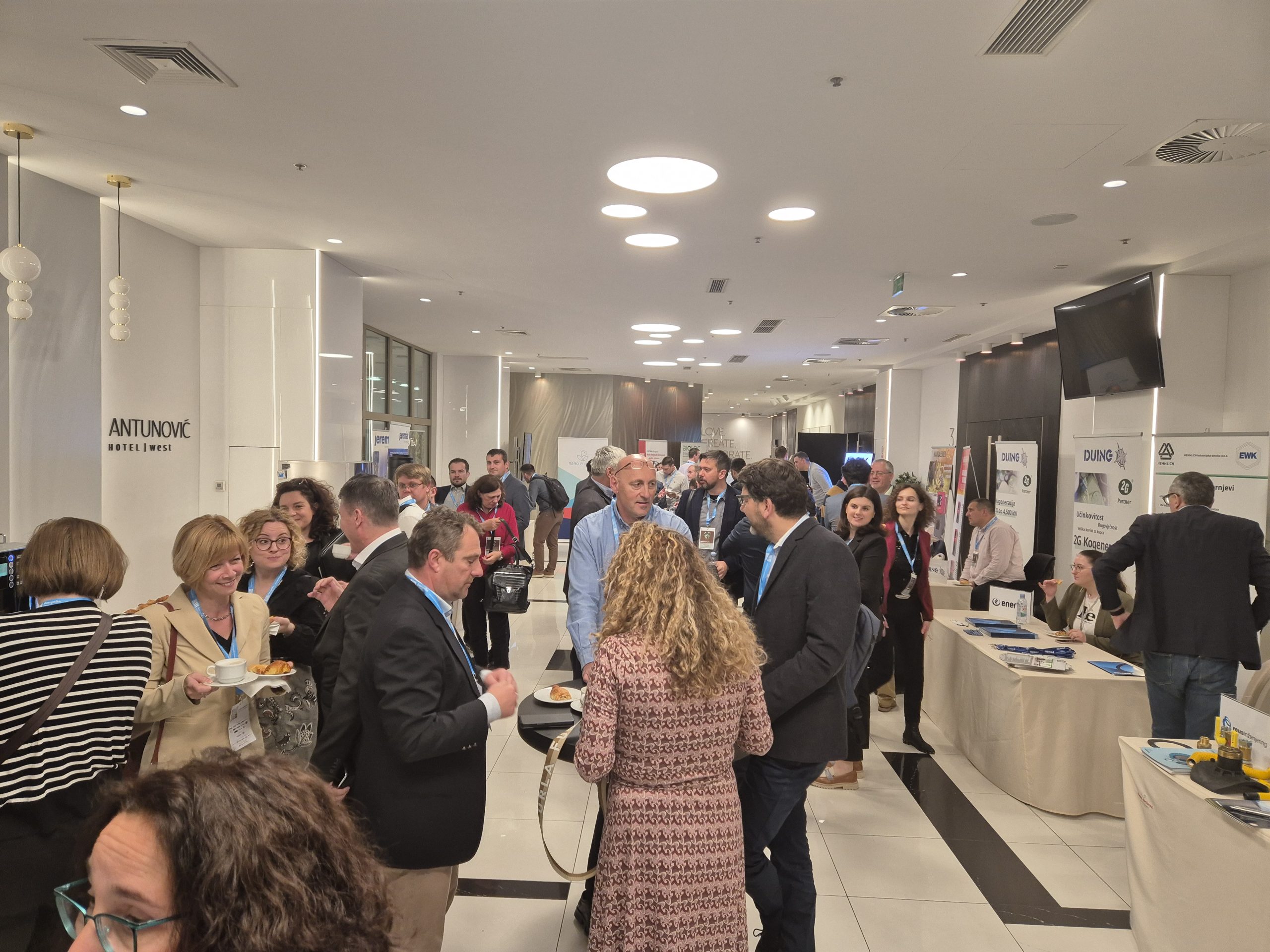- Renewable energy produced at the location of the building through the PV module
- Seven times more efficient lighting system (LED lamps)
- New distribution system of heating, cooling and mechanical ventilation with heat regeneration
- Complete digitization of technical systems and their controllability for indoor comfort according to temperature, CO2 concentration2 and lighting
- 65% lower energy costs after the first phase of renovation
Energy Institute Hrvoje Požar (EIHP) has embarked on a green and digital transition - the first phase of the renovation of the EIHP office building begins with the goal of achieving the nearly zero energy standard (nZEB).The renovation is part of the larger project "Establishment of the National Training Center for Almost Zero Energy Buildings (nZEB)", which will operate in the renovated building, for which EUR 1.6 million of grants from the "Energy and Climate Change" program have been secured as part of the Financial of the European Economic Area (EEA) mechanism for the period 2014-2021. The project started in May 2021 and ends in April 2024.

EIHP CEO Dražen Jakšić pointed out:"At the Institute, we deal with all aspects of energy development, which is undoubtedly going in the direction of decarbonization and digitization, and energy efficiency and renewable energy sources are key in this. In accordance with this, but also with our vision to become a globally recognizable generator of changes in the energy sector, we are a program partner of the Ministry of Regional Development and EU Funds, which has the role of manager of the "Energy and Climate Change" program. We provide them with technical support in the segment of renewable energy sources, and at the same time, we have designed and secured funds from the program for the implementation of our project to show by example the way to go towards decarbonization in the building sector. As part of the project, we are working on the renovation of our office building to achieve nZEB standards, but the main goal is to establish a national training center and become a demonstrative example of green and digital transition", said Jakšić.

The national training center is an education program for key stakeholders in the nZEB renewal process, which begins at the end of September. The training will be conducted with the project partner, the Faculty of Civil Engineering of the University of Zagreb, and will be held online during the renovation. PhD Vesna Bukarica, PhD, project manager of the nZEB project, pointed out that the renovation will be monitored and documented in detail, which will serve as an example in the education program: "Through the pilot action of the renovation of our building, we will point out all the benefits of renovation according to the nZEB standard, but also the trials in implementation. The first lectures start on September 22, and we are particularly pleased that the interest is very high; experts from outside Croatia are also applying, which further confirms that we have chosen a good direction, that is, a good program that can improve the knowledge of specific stakeholders participating in the building renovation process. We aim to become a central place for educating experts from the construction sector and training them to solve renovation challenges, but we also want to increase awareness of the importance of building renovation by applying innovative technical solutions to achieve nZEB standards", emphasized Bukarica.

Margareta Zidar, building designer, explained that the improvement of the EIHP building according to the nZEB standard will be carried out in two phases: "In the first phase, we will implement a seven times more efficient lighting system, 30% renewable energy produced at the building's location through photovoltaic modules with a power of 50 kW, new distribution system of heating, cooling and mechanical ventilation with heat regeneration. All technical systems will be digitized and managed by a new automation system according to the occupancy of the space and comfort parameters for temperature, CO2 concentration2 and light intensity and will be prepared for energy exchange with the grid. According to our analyses, we will have 65% lower energy costs in the first phase. The second phase will be the construction of a water-to-water heat pump that will use underground water as an energy source, with which we will produce almost all the necessary energy at the location of the building. The documentation is being prepared, and when all the measures that make up the optimal solution are implemented, our analyzes show that we can reduce the current energy consumption by as much as ten times. Currently, on an annual level, we consume about 320 MWh of energy, and with all the optimal measures, we estimate that this consumption will be about 32 MWh", said Zidar.
More information can be found on: https://www.nzebcentar.hr/








